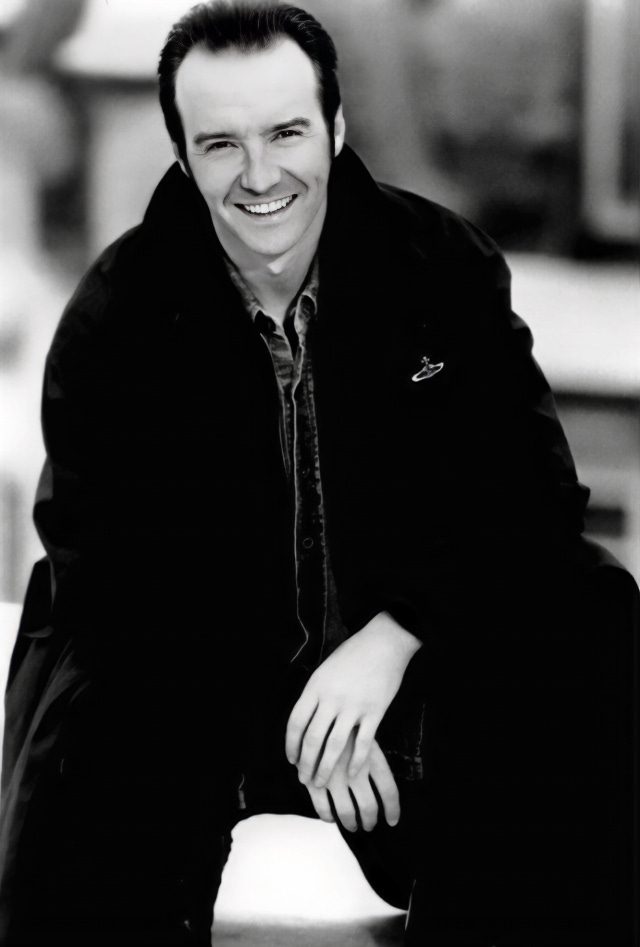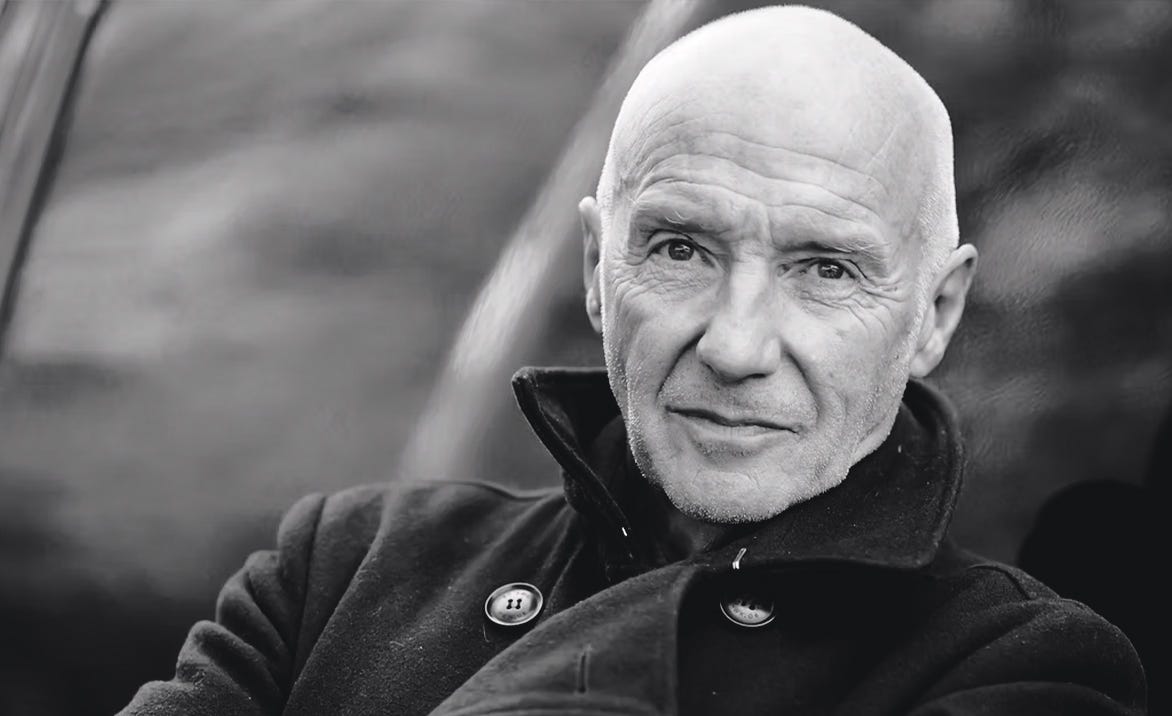The 'Alternating Currents' Legacy Interview: Midge Ure
From 1991, the former Ultravox frontman talks about Band Aid, The Prince's Trust and his latest release 'Pure'
Prologue
There is something curious about Midge Ure. I don’t mean his name, which certainly creates puzzled looks on most people’s faces. Or the fact that Band Aid and Live Aid – the phenomenal global effort from 1984–85 to raise money for Ethiopian famine victims – changed the face of music forever due to his involvement. Midge Ure would just like to be “known well enough to have people pronounce my name correctly,” and with his new release, the situation may be rectified.
Pure (RCA) is Midge’s third solo album since the demise of Ultravox, a band whose heavy use of synthesizers and grandiose arrangements never quite garnered them acceptance in the States. The electronic layered instruments and Midge’s powerful vocal delivery on songs like “Reap The Wild Wind,” “Dancing With Tears In My Eyes,” and the haunting “Vienna,” and their accompanying videos were cornerstones in the early days of MTV. But Americans got their first real taste of Midge when he and Bob Geldof put together “Do They Know It’s Christmas?” in Iate 1984 for Band Aid and followed it up with Live Aid in the summer of 1985. It was interesting then to note that as Midge spoke on the phone from New York in February, the Band Aid Trust had just closed down after seven years of long, hard work.
“Well, it’s been going that way,” Midge said in his lilting Scottish brogue. “We haven’t raised any money for quite a while, and the last three or four years have all been concentrating on long-term projects. So it had to happen at some point. But the good thing is that the legacy has been left. It still will be an ongoing thing, ‘cause the record will make money and that money will be passed onto whoever we assign as beneficiaries.”
Let It Go?/℗© 2014 Hypertension Music/Mood Music, Warner Chappell Music/YouTube
“Let It Go?” from Pure is notable in that Midge hints at a backlash towards this kind of responsibility, and since Geldof shouldered most of Band Aid’s burdens, it had obvious detrimental results on his musical career.
“I think there’s no doubt about that,” Midge said. “It’s very difficult to be perceived as a singer-songwriter when most people in the world know you as ‘the leader of Band Aid.’ And really, all he wanted to do was go in and write songs. Just get on with what he’s always done.”
Midge has, in some ways, stayed on the fringes, continuing with a heartfelt need to express his thoughts on love, brotherhood, anguish, and world peace. His humor is gentle, and laughter bubbles up when he’s reminded of his charismatic stage presence. Still, he readily acknowledges that the lyrics of Pure’s single “Cold, Cold Heart” are a scathing contrast to the upbeat melody.
Midge Ure – Cold, Cold Heart/℗© 2014 Hypertension Music/Mood Music, Warner Chappell Music/YouTube
“It’s just me doubting my ability to handle relationships. But anyone can have doubts about themselves when it comes to things like that.” It’s only been two years since his last release, Answers To Nothing, and four years before that with The Gift, but surprisingly, he admitted that although he is proud of the work on Pure, he thought “two years is excessive by anyone’s standards. It’s just a ridiculous amount of time.” The time-consuming part is that Midge plays most of the instruments himself and handles the role of producer alone.
“Sometimes it’s difficult to make a decision instantly,” he said. “You can’t say ‘This is right and that’s wrong.’ You just shelve it, go onto something else, and come back to it. So it’s a very long-winded process, but it means I get to control all the elements.” He thought aloud by saying that next time he may do things differently by going into the studio with an actual band and “record it all in a month!”
So who are the musicians that help Midge realize his vision, the people that, in his words, “walk all over me with their brilliant parts.” Drummer Mark Brzezicki has played in the studio and live with Midge for a while and contributes some fabulous rhythms for the tango-flavored “Pure Love” and the poignant “Tumbling Down” in its commentary about the dismantling of the Berlin Wall, as it runs a parallel theme to the musical styles of Germany in the 1930s.
“I wanted to do it in that particular style,” Midge explained, “because I thought it was sympathetic to what was actually going on – a sort of Bertolt Brecht style of music that was happening just before World War II started.” Midge’s work ethic also helped on “I See Hope In The Morning Light.” Although work in progress for the song was spread out over a year and a half, it’s an eclectic potpourri of African rhythms and angelic vocal harmonies.
“It’s bizarre,” he commented. “My ideas when I started a song were probably radically different from when I finish a song. My ideas for the song just kept developing. I said I wanted Irish pipes in there to make it sound haunting. But I also wanted a gospel choir to make it sound elative and hopeful.”
He recruited The Chieftains’ Paddy Moloney for the pipes and was amazed after traveling to Ireland for the recording session that Moloney did his part “in about half an hour. Incredible!”
What’s incredible from another standpoint is Midge’s role as musical director for The Prince’s Trust concerts over the past few years. As befitting a benefit, a lot of high-power musicians have played, including Paul McCartney, Eric Clapton, Mark Knopfler, Elton John, Phil Collins, and here’s Midge having to coordinate the whole effort down to the finest detail, and on short notice. Rather a contradiction to his own production efforts, you might say?
Paul McCartney - I Saw Her Standing There (Prince’s Trust Rock Gala 1986) (Alternate Version)/℗© Northern Songs/YouTube
“Well, that’s different,” he conceded after a long laugh. “It sounds like a very grandiose position to have, but those guys know what they’re doing. Basically, what I’m doing is being a mediator and keeping the atmosphere calm and steady. And having people trust you to pull it together.” When asked about just being onstage with these legends, he responded, “It was purely fan-based. The idea of being onstage with Eric Clapton? It still excited me, ‘cause I’m a fan of music as well as a creator of it. So, I get involved ‘cause they’re really good fun and I enjoy. it.”
One puzzling aspect left to resolve, even after all this, is where Midge stands with an American following. He aligns himself with what would be typified as a mainstream audience (“I’m a melody man, what can I say?”), yet his days in Ultravox have left the impression that he should still be classified as an alternative artist.
“There’s a fine balance. The fact that Sting or Peter Gabriel can have a more widespread audience and it doesn’t seem to affect the music at all. They still stick to their guns and do what they do. But obviously, a larger audience gets to hear them than gets to hear me. There’s a way of doing that, but I haven’t got a clue what it is!”
The clue then, must be found in Midge’s music, and if nothing else, it seems that sometimes people do get a certain message. He’s currently touring with four other musicians in an acoustic educational setting, where the public can ask questions about his insights on creating and writing. It’s a good forum, and if anything, he doesn’t have to worry about some drunken lout screaming out for “The Thin Wall.”
“Well, that has its appeal as well at times,” he commented with a hearty laugh.
The drunken lout or “The Thin Wall?”
“Both!”
Epilogue
Midge celebrated his 70th birthday with a concert at the Royal Albert Hall in October 2023 that was released as Live at The Royal Albert Hall 04.10.23 in November 2024.
He will be on tour in 2025–2026 throughout Europe, the UK, and Australasia.





